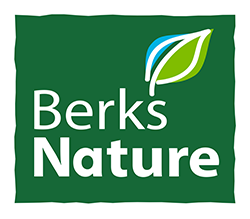It had always been a dream of Deanne Boyer to one day farm the land.
I am text block. Click edit button to change this text. Lorem ipsum dolor sit amet, consectetur adipiscing elit. Ut elit tellus, luctus nec ullamcorper mattis, pulvinar dapibus leo.
She herself was raised on a farm outside of Fleetwood in Berks County, a rolling, fertile valley nestled between the foothills of the Kittatinny Ridge to the north and the Oley Hills to the south.
While life and its competing currents pulled Deanne away from Fleetwood for a time, the family farm soon called her back to realize that childhood dream and lay down the roots of a new business in familiar soil.
Willow Run Farmstead – named for its watershed, the Willow Creek – was purchased by Deanne’s grandfather in the 1950s. Deanne’s father took over next, leasing out the fields to a neighboring farm. At the time, the farm was fairly conventional: about 12 acres of the operation was pastureland and the remaining fields rotated between corn and soy.
Deanne’s vision for Willow Run Farmstead was anything but conventional. Instead, she looked to align the farm’s operations with the local ecosystem, trusting natural conventions over industrial traditions.
In Deanne’s own words: “There’s a reason that these things are doing the things they do, so why do I think I know better than these natural systems?”
A grant from the U.S. Department of Agriculture’s Natural Resources Conservation Service (NRCS) was the catalyst that Deanne and the entire Weber family needed to galvanize this change. The NRCS provided both technical and financial assistance to put the entirety of Willow Run Farmstead into pasture, 60 acres in total.
Deanne’s dream came to life as the Willow Run Farmstead, a farm focused on three things: “producing high quality food in a humane way that is environmentally sustainable.”

Deanne Boyer, owner of Willow Run Farmstead.
Six acres of Willow Run Farmstead’s pastureland are considered silvopasture: a practice that intentionally incorporates trees, forage, and grazing animals on the same land for the mutual benefit of all.
Silvopasture enriches the local ecosystem from the ground up, literally. The deeply rooted trees and low-lying plants in a silvopasture system stabilize soil against erosion, enhance soil structure, and contribute extra organic matter, all of which improves soil health.
Trees also moderate the pasture’s microclimate in the face of harsh and dynamic weather conditions – from summer heat to winter’s wind – and naturally provide balanced and diverse grazing opportunities keeping herds happy and healthy.
From a fiscal standpoint, silvopasture can increase both the quantity and quality of forage, reduce the cost and dependency on external feed, and sustain healthier herds, all while leveraging a growing and unmet market demand for environmentally friendly food.

Young trees freshly planted at Willow Run Farmstead.
Willow Run Farmstead’s pastureland is not the only place new trees have taken root. In 2017, in one of their first acts of embracing regenerative agriculture, Deanne planted 5 acres of trees along the farm’s creek, a tributary of Willow Creek, to buffer the waterway from stormwater runoff and improve water quality.
While many of these trees took to their new home, those in the lowlands failed to thrive, reacting poorly to Berks County’s increasingly wet climate. As luck would have it, Deanne’s uncle is a long-time volunteer with Berks Nature and connected his niece with Larry Lloyd, Berks Nature’s Senior Ecologist, to discuss solutions.
Following the simple wisdom of, “nature knows best,” Larry helped Deanne select new trees for her streamside forest; species that prefer “wet feet” and thrive in soggy soils.
With financial support from Met-Ed, a FirstEnergy Company, Deanne purchased 175 native trees, a mix of black willows, river birch, and cottonwoods. In April 2024, Berks Nature brought the manpower to get all 175 trees situated in their new homes.

A young cow grazing the pasture of Willow Run Farmstead.
Between the tree-laced pasture and wooded creek, Willow Run Farmstead is challenging many of our modern farming norms, adding complexity to a system we have long tried to simplify.
But for Deanne, this approach has yields for her entire community – from the earth below, to the air above, and all life in between – and that is reason enough to farm in this way.
“One thing I saw when I started doing more regenerative agriculture was the stark difference between how conventional farming looks at animals or at plants or at soil as something to be used and not something to be worked with,” reflected Deanne.
The fruit of cooperating with the land is in full bloom at Willow Run Farmstead.
Songbirds live here in abundance, sustained by the insects that flit and skitter through the pesticide-free pasture. There are voles here too, which are hunted by the farm’s resident pair of American kestrels, to feed their chicks.
In July 2023, when the Fleetwood area was drowned in 10 inches of rain in a single day, stormwater was successfully absorbed by the streamside forest and adjacent pasturelands and Willow Run Farmstead escaped the storm unscathed.
Business is booming too. The Willow Run Farmstead serves 300 customers – a number that grows every year – the majority of which are local, living within 50 miles of the farm. Deanne is especially proud of her returning customers; many of the families that patronize Willow Run Farmstead have been doing so since the beginning, trusting Deanne year after year to feed their families.
Deanne, the Webers, and Willow Run Farmstead are a testament to regenerative agriculture, and its power to create profitable, resilient, and sustainable food systems.
“Being able to create a system where we’re producing not just food for people but food for wildlife and food for cattle all at the same time, these things are possible!” affirmed Deanne, “It’s not one or the other. We can build these systems in a way that everyone gets what they need.”

